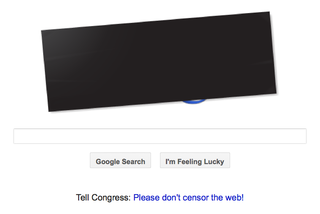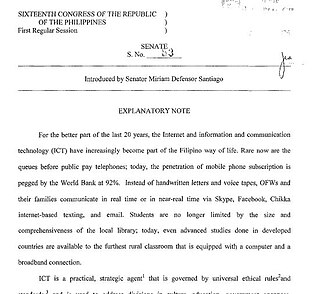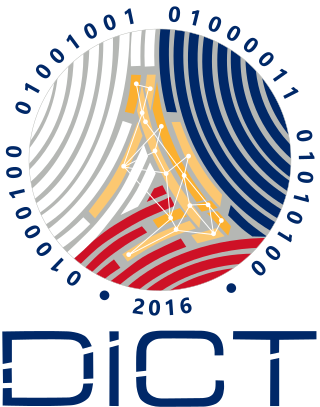
Cybercrime encompasses a wide range of criminal activities that are carried out using digital devices and/or networks. These crimes involve the use of technology to commit fraud, identity theft, data breaches, computer viruses, scams, and expanded upon in other malicious acts. Cybercriminals exploit vulnerabilities in computer systems and networks to gain unauthorized access, steal sensitive information, disrupt services, and cause financial or reputational harm to individuals, organizations, and governments.
Center for Democracy & Technology (CDT) is a Washington, D.C.–based 501(c)(3) nonprofit organisation that advocates for digital rights and freedom of expression. CDT seeks to promote legislation that enables individuals to use the internet for purposes of well-intent, while at the same time reducing its potential for harm. It advocates for transparency, accountability, and limiting the collection of personal information.
Green computing, green IT, or ICT sustainability, is the study and practice of environmentally sustainable computing or IT.

Central Philippine University, also known as Central or CPU, is a private university located in Jaro, Iloilo City, Philippines. It was established in 1905 through the benevolent grant of the American industrialist and philanthropist John D. Rockefeller. It is the first Baptist and second-American founded university in the Philippines and Asia. The university was initially known as the Jaro Industrial School and Bible School, under the supervision of the American Baptist Foreign Mission Society.
In 2003 and following years, initiatives were instituted to improve internet access for people with disabilities in the Philippines. These measures were inspired by the UNESCAP "Asia-Pacific Decade for Disabled Persons" (1993–2002). Key organizations included the government body National Council for the Welfare of Disabled Persons (Philippines) and the private sector body Philippine Web Accessibility Group (PWAG). The "Disabled Friendly Website Awards" were launched to encourage web designers to incorporate universal access. Since 2009 unhampered access to Information and Communications Technology (ICT) has been in the second National Human Rights Action Plan of the Philippine government.

Internet in the Philippines first became available on March 29, 1994, 10:18 a.m., with the Philippine Network Foundation (PHNet) connecting the country and its people to Sprint in the United States via a 64 kbit/s link. As of February 2023, there are 85.16 million internet users in the country, where internet penetration stood at 73.1% of the total population.

Mass media in the Philippines consists of several types of media: television, radio, newspapers, magazines, cinema, and websites.
CPU is a computer's central processing unit.

The PROTECT IP Act was a proposed law with the stated goal of giving the US government and copyright holders additional tools to curb access to "rogue websites dedicated to the sale of infringing or counterfeit goods", especially those registered outside the U.S. The bill was introduced on May 12, 2011, by Senator Patrick Leahy (D-VT) and 11 bipartisan co-sponsors. The Congressional Budget Office estimated that implementation of the bill would cost the federal government $47 million through 2016, to cover enforcement costs and the hiring and training of 22 new special agents and 26 support staff. The Senate Judiciary Committee passed the bill, but Senator Ron Wyden (D-OR) placed a hold on it.

The Stop Online Piracy Act (SOPA) was a proposed United States congressional bill to expand the ability of U.S. law enforcement to combat online copyright infringement and online trafficking in counterfeit goods. Introduced on October 26, 2011, by Representative Lamar Smith (R-TX), provisions included the requesting of court orders to bar advertising networks and payment facilities from conducting business with infringing websites, and search engines from linking to the websites, and court orders requiring Internet service providers to block access to the websites. The proposed law would have expanded existing criminal laws to include unauthorized streaming of copyrighted content, imposing a maximum penalty of five years in prison.

On January 18, 2012, a series of coordinated protests occurred against two proposed laws in the United States Congress—the Stop Online Piracy Act (SOPA) and the PROTECT IP Act (PIPA). These followed smaller protests in late 2011. Protests were based on concerns that the bills, intended to provide more robust responses to copyright infringement arising outside the United States, contained measures that could possibly infringe online freedom of speech, websites, and Internet communities. Protesters also argued that there were insufficient safeguards in place to protect sites based upon user-generated content.

The Cybercrime Prevention Act of 2012, officially recorded as Republic Act No. 10175, is a law in the Philippines that was approved on September 12, 2012. It aims to address legal issues concerning online interactions and the Internet in the Philippines. Among the cybercrime offenses included in the bill are cybersquatting, cybersex, child pornography, identity theft, illegal access to data and libel.
Information and communication technology (ICT) in Kosovo has experienced a remarkable development since 1999. From being almost non-existent 10 years ago, Kosovar companies in the information technology (IT) domain offer today wide range of ICT services to their customers both local as well as to foreign companies. Kosovo has the youngest population in Europe, with advanced knowledge in ICT.

The Magna Carta for Philippine Internet Freedom is an internet law bill filed in the Congress of the Philippines. The bill contains provisions promoting civil and political rights and Constitutional guarantees for Philippine internet users, such as freedom of expression, as well as provisions on information and communications technology (ICT) policy, ICT4D, internet governance, e-governance, cybersecurity, cyberwarfare, cyberterrorism, and cybercrime.
In the Philippines, censorship involves the control of certain information.

The Department of Information and Communications Technology (DICT) is the executive department of the Philippine government responsible for the planning, development and promotion of the country's information and communications technology (ICT) agenda in support of national development.
Information Communications Technology is usually included in the Home Economics and Livelihood Education program in grade school and taught through the Technology and Home Economics program in high school. The recent status of ICT education in the Philippines, along with other Southeast Asian countries, was surveyed by the Southeast Asian Ministers of Education Organization (SEAMEO) in 2011. Using the UNESCO model of ICT Development in Education, the countries were ranked as Emerging, Applying, Infusing or Transforming. The Philippines were ranked at the Infusing stage of integrating ICT in education, indicating that the country has integrated ICT into existing teaching, learning and administrative practices and policies. This includes components such as a national vision of ICT in education, national ICT plans and policies, complementary national ICT and education policies, professional development for teachers and school leaders, community or partnership and teaching and learning pedagogies. A 2012 study reported that public high schools in Metro Manila had a computer to student ratio of 1:63. While 88 percent of schools have internet connections, half of the students claimed not to be using it.
The digital divide the Philippines refers to inequalities between individuals, households, and other groups of different demographic and socioeconomic levels in the Philippines in access to information and communication technologies ("ICTs") and in the knowledge and skills needed to effectively use the information gained from connecting.
Cybersex trafficking, live streaming sexual abuse, webcam sex tourism/abuse or ICTs -facilitated sexual exploitation is a cybercrime involving sex trafficking and the live streaming of coerced sexual acts and/or rape on webcam.










